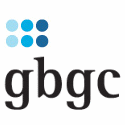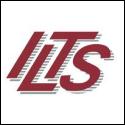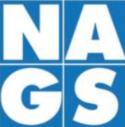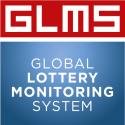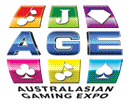Proposal to Introduce a 5% Tax on the Proceeds from So-Called “Skill Games”
LINCOLN, Neb. (January 23, 2024) – According to local media reports a proposal to place a 5% tax on proceeds from so-called “skill games” got an emphatic thumbs down Monday from several Nebraska distributors of the slot machine-like devices that have proliferated across the state.
The ‘Nebraska Examiner‘ reported State Senator John Lowe of Kearney portrayed his amended version of Legislative Bill 685 as turning amusement game distributors into supporters of a 5% tax as well as a new, $5,000 annual fee for those who manufacture and distribute the games.
But smaller, Nebraska-based companies complained they weren’t part of the re-crafting of a bill introduced last year, and that while a 5% tax might be OK, the rest of the bill was “heavy-handed” regulation that would force small taverns, restaurants and veterans clubs to give up their machines.

So-called “skill games,” like these at the Daily Double keno parlor in Denton, have proliferated across the state. They are not considered “gambling” because it takes some level of skill to win.(Paul Hammel/Nebraska Examiner)
‘Strict mandates’
Lowe, who chairs the legislative committee that deals with gambling, pledged to work out issues with opponents of his proposal, which he said improved the original LB 685.
“I knew this wasn’t a finished product when we brought it,” Lowe is quoted as saying, adding that he won’t raise the proposed tax above 5% and doesn’t want to regulate someone out of business.
“That’s not my goal,” Lowe said.
He portrayed his amended version of LB 685,ew worked after an interim study this fall, as bringing order to the disordered world of skill games.
The devices, which look and play like a video slot machine, are considered different that casino games because they require some level of skill to win. By contrast, casino slots are considered “games of chance.”
The “grey” legal area for skill games has allowed them to rapidly proliferate across the state because, unlike slot machines, they do not have to be located in a licensed casino.
60% growth in number of machines
The ‘Nebraska Examiner‘ reported a state revenue official testified Monday that there are now 5,852 licensed skill games across the state — a 60% increase over the past year. They can be found at 1,611 locations, including truck stops, gas stations, convenience and grocery stores, service clubs and even a “de facto” casino.
The growth in skill games has caught the attention of Nebraska casino operators, who maintain that it’s unfair that they must pay a $1 million fee to open a gambling partner and pay a 20% tax on slot machine proceeds when operators of skill games pay no tax, just $285 in state sticker and operator fees.
Lowe’s proposal would address that by requiring a $5,000 annual fee for distributors and manufacturers of the skill games, as well as a 5% tax on skill game proceeds, which would be monitored by a central computer server monitored by the Nebraska Department of Revenue.
Brian Rockey, the state lottery director, said the regulations were modeled after similar rules in Georgia, a state that has about six times more skill games than Nebraska.
Rockey estimated that Nebraska could realize $7.3 million a year in additional tax revenue via the increased fees and new tax in Lowe’s proposal.
Tax devoted to property tax relief
Under Lowe’s proposal, 40% of that revenue would be devoted to property tax relief, Gov. Jim Pillen’s No. 1 priority this year.
Representatives of five operators and manufacturers of skill games — including Bosselman Enterprises of Grand Island and the state hospitality association — said they supported LB 685 as amended.
Originally, the bill, introduced last year by then-State Sen. Tom Briese, called for a 20% tax on skill game proceeds, the same level of taxation as on slot machines.
But Lowe’s proposal settled on 5%, which one proponent said was reasonable given that the average revenue on skill games in Nebraska was $32 per machine, compared to Georgia, where the tax rate is 10% and the average revenue is $110 per machine.
By contrast, the tax rate on such games in Illinois is 34%, which yielded $730 million in tax revenue in the first nine months of the year, according to a recent report from the Legislative Research Office.
Because of concerns about the tax rate possibly rising during further action on LB 685, Lowe pledged to kill his proposal if the tax rate rose above 5%.
But opponents of the proposal had additional concerns with the amended bill.
Fees too high for small operators
They said it was unreasonable to require operators, distributors and manufacturers to undergo yearly background checks when many already did that to obtain a liquor license. The $5,000 fee, many opponents said, might be OK for large distributors from out of state, but they called it a killer for small, Nebraska-based businesses that manage only a couple dozen skill machines, along with pinball, billiards and dart games.
“I’d like to know how many proponents have Nebraska drivers licenses,” said one critic of LB 685, Todd Carpenter — a comment that drew applause from the nearly full hearing room.
One provision of the bill, Lowe said, was aimed at eliminating “de facto” casinos featuring skill games, like one that operates in Kearney. It would require businesses that have skill games to derive 60% of their gross operating revenue from sources other than the skill machines.
The General Affairs Committee, which Lowe chairs, took no action following the public hearing on the amended LB 685.
But two senators on the committee, Jana Hughes of Seward and Tom Brewer of Gordon, voiced interest in amending the bill so that smaller distributors/managers of skill games could pay less than the $5,000 yearly registration fee.
“It’s a cookie cutter (fee) that doesn’t fit everyone,” Brewer said.
Article By:
SOURCE: Nebraska Examiner (Follow Nebraska Examiner on Facebook and Twitter.)
Tags: Nebraska, Tax, Skill games














